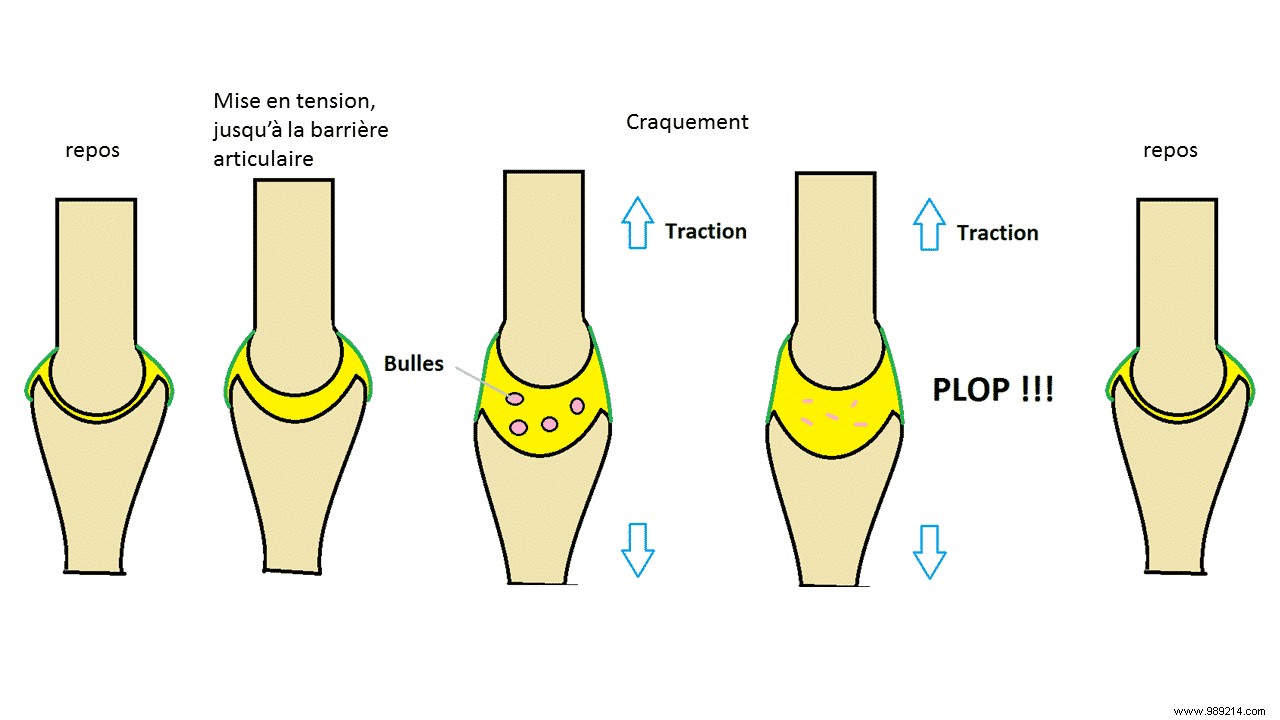The creaking or popping of the joints is sometimes involuntary. However, in many cases, people have made it a habit that can sometimes be annoying. But where does this noise come from in the end? And does it pose a risk to our joint health?
It is sometimes possible to hear a slight click in the knee or hip when passing a tendon over a bony protuberance. Nevertheless, the majority of cracks occur due to cavitation resulting from the separation of the articular surfaces. A gas bubble is created in the synovial fluid of the joints and it emits a noise as it explodes (see diagram below). However, another theory puts forward an appearance of noise during the formation of the bubble itself.

While sometimes unintentional, the crackle is also a fad for many people. The habit of voluntarily cracking the joints of the fingers or the neck has a name:self-manipulation . It should also be noted that the crunch is often used in chiropractic, a pseudo-scientific practice of unconventional medicine.
One of the most common misconceptions that you can hear on cracking is nothing other than the increased risk of premature arthritis and osteoarthritis in the long term. But what is it really?
Several studies suggest that cracking your joints has no significant negative effects . A study published in the journal Clinical Anatomy in 2018 explains, for example, the results obtained by the American doctor Donald Unger. The latter cracked the joints of only one of his hands for more than half a century. However, he observed no difference with the other hand in terms of the appearance of arthritis. For his work, the man was awarded the Ig Nobel Prize for Medicine in 2009.
Previously, another study from 1975 already investigated the possible consequences of the habit of cracking the joints. Two groups of older people took part in this work:the members of the first group had their fingers cracked often, while those of the second group avoided it. However, the results did not mention no increased risk of arthritis , even in cases where the cracks may have caused cracks in the joints. However, you should know that the 2018 study still mentions several reports about injuries resulting from the cracking of the joints. However, these are fairly rare cases and the seriousness of which has never been considered very important.
Finally, let's emphasize that the absence of danger concerns the fingers, but not the neck. Indeed, cracking his neck or rather his cervical vertebrae can lead to tearing the arteries going towards the neck bone , i.e. the vertebral arteries. In the worst case, this practice can lead to a stroke.